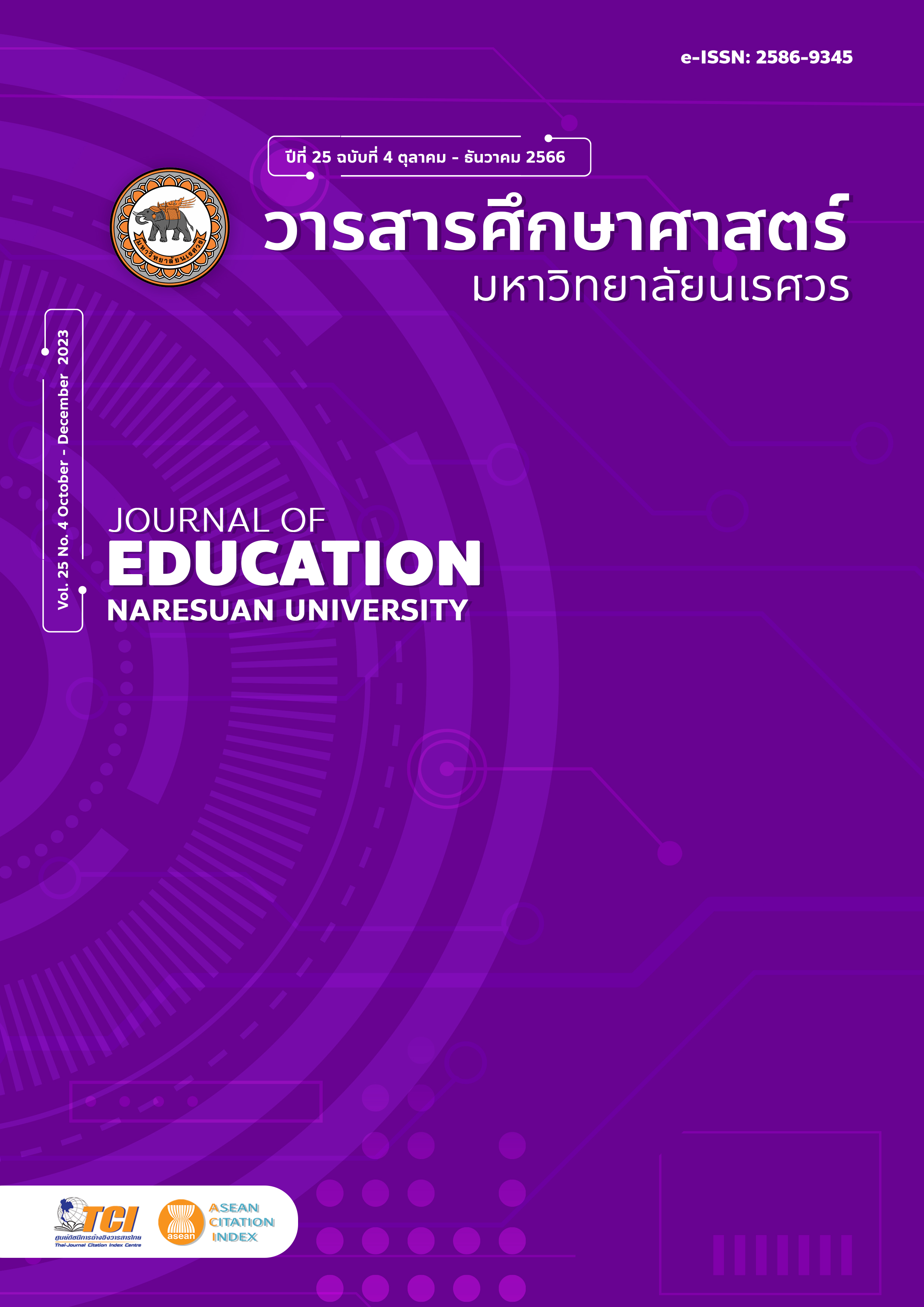THE STUDY OF KNOWLEDGE MANAGEMENT CAPABILITY AND INNOVATION IN ENGLISH LANGUAGE TEACHERS AT RAJAMANGALA UNIVERSITY OF TECHNOLOGY ISAN
Main Article Content
Abstract
The purposes of this research were: 1) to study knowledge management capability of English language teachers of Rajamangala University of Technology Isan, 2) to study innovativeness of English language teachers of Rajamangala University of Technology Isan, and 3) to study correlation between knowledge management capability and innovativeness capability of English language teachers of Rajamangala University of Technology Isan. The samples were 20 English language teachers from the main and 3 campuses who were teachers in the curriculum; Bachelor of Arts Program in English for International Communication. The instruments were a questionnaire, and a structured interview. The Statistical analyses used for this research were frequency, percentage, means, and standard deviations. The major findings revealed that: 1) the six components of knowledge management capability of English language teachers which are technology, structure, culture, expertise, learning, and information of English language teachers were of high capability level. 2) The five components of innovativeness of English language teachers which are instructional media, teaching methodology, curriculum, evaluation, and management of English language teachers were of high capability level. 3) The result findings showed that the six components of knowledge management capability, have positive correlation at intermediate level with the five components of innovativeness of English language teaching through the Pearson Coefficient Correlation.
Article Details

This work is licensed under a Creative Commons Attribution-NonCommercial-NoDerivatives 4.0 International License.
The owner of the article does not copy or violate any of its copyright. If any copyright infringement occurs or prosecution, in any case, the Editorial Board is not involved in all the rights to the owner of the article to be performed.
References
Akaraborworn, J., Yodrakang, J., & Jaroenwongmitr, A. (2009). Knowledge management (3rd ed.). Bangkok: Office of the Public Sector Development Commission. [in Thai]
Aujirapongpana, S, Vadhanasindhu, P., Chandrachai, A., & Cooparat, P. (2011). Knowledge management capability and innovativeness of innovative entrepreneurs in Thailand. Nakhon Si Thammarat: Walailak University. [in Thai]
Cheejang, S. (2008). Higher education and knowledge-based society. Dusit Thani College Journal, 2(2), 19-41. [in Thai]
Eillis, R. (1987). Second language acquisition in center. Great Britain: Cambridge University Press.
Foithong, K. (2009). Training English teacher by utilizing knowledge management processes. Retrieved from http://researchers.in.th [in Thai]
Kannasut, P. (1999). Statistics for behavioral and social science research (3rd ed.). Bangkok: Chulalongkorn University Press. [in Thai]
Krashen, S. D. (1985). Inquiries and insights: Second Lamguage Teaching Immersion and Billingual Education Literacy. Hayward, CA: Alemany Press.
Li, D., & Edwards, V. (2014). English language teaching an educational reform in Western China: A knowledge management perspective. System, 47, 88-101. DOI: 10.1016/j.system.2014.09.019
Lorsuwannarat. T. (2007). Management tools. Bangkok: National Institute of Development Administration. [in Thai]
Lueg, C. (2001). Information, knowledge, and networked minds. Journal of Knowledge Management, 5(2), 151-160.
Nakornthap, A. (2003). Autonomous university in innovative knowledge transfer: Autonomous university under social responsibility and public interest. Bangkok: Parbpim Printing. [in Thai]
National Innovation Agency. (2007). Culture policy: The study of Thailand Innovative Capability 2007. Retrieved from http://www.nia.or.th/index.php?section=aboutus&page=strategy_policy [in Thai]
National Science and Technology Development Agency. (1999). Innovation: Key to success of Thailand in the 21st century. Retrieved from http://office.nu.ac.th [in Thai]
Nonaka, I., & Takeuchi, H. (1995). The knowledge-creating company. Oxford, NY: Oxford University Press.
Office of the Higher Education Commission. (2007). Qualifications for higher education. Bangkok: Parbpim Printing. [in Thai]
Panich, V. (2008). Knowledge management: Community practice (4th ed.). Bangkok: Knowledge Management Institution. [in Thai]
Rajamangala University of Technology Isan. (2015). Bachelor of Arts Program 2015. Khon Kaen: Faculty of Technical Education. [in Thai]
Rajamangala University of Technology Isan. (n.d.). History. Retrieved May 25, 2021, from https://rmuti.ac.th/main/about/history/ [in Thai]
Rajamangala University of Technology Isan. (2016). Self-Assessment Report: SAR 2016. Khon Kaen: Faculty of Technical Education. [in Thai]
Ruggles, R. (1998). The state of the notion: Knowledge management in practice. California Management Review, 40(3), 80-89. https://doi.org/10.2307/41165944
Saeteaw, T. (2005). Measurement analysis knowledge management: the key to build organization intelligent. Bangkok: Thailand Productivity Institute. [in Thai]
Sittisomboon, M. (2015). Educational Innovation. Retrieved November 24, 2015, from http://office.nu.ac.th [in Thai]
Skarzynski, P., & Gibson, R. (2008). Innovation to the core: a blueprint for transforming the way your company innovates. Boston, Mass: Harvard Business School Press.
Thamraksa, C. (2010). English teaching innovation SECI model. BU Academic Review, 9(2), 79-91. [in Thai]


